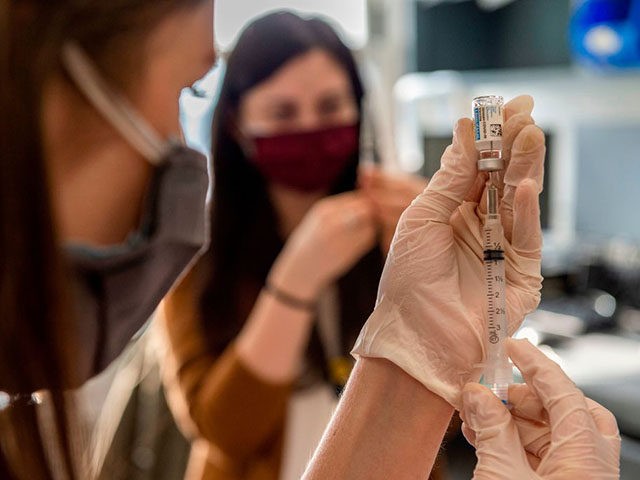The non-mRNA coronavirus Johnson & Johnson shot is no longer available in the U.S., according to the U.S. Centers for Disease Control and Prevention (CDC).
The CDC last week stated that the J&J shot is “no longer available in the U.S.,” urging all facilities with remaining doses to discard them, as they reportedly expired May 7. As such, the CDC said those who received one J&J shot are “considered to have received a single-dose Janssen primary series.” Further, the CDC is now recommending those who received one or two J&J shots to now receive one bivalent mRNA dose as well.
The full CDC update reads:
Janssen COVID-19 Vaccine is no longer available in the U.S. All remaining U.S. government stock of Janssen COVID-19 Vaccine expired May 7, 2023. Dispose of any remaining Janssen COVID-19 Vaccine in accordance with local, state, and federal regulations.
People ages 18 years and older who received 1 dose of Janssen COVID-19 Vaccine should be considered to have received a single-dose Janssen primary series.
People ages 18 years and older who received 1 or 2 Janssen COVID-19 Vaccine dose are recommended to receive 1 bivalent mRNA dose (Moderna or Pfizer-BioNTech) at least 2 months after completion of the previous dose.
According to CDC figures, roughly 81 percent of Americans, 270,227,181 have received at least one coronavirus shot. Over 676 million doses have been administered, according to the federal health agency. But most of those doses were one of the mRNA jabs — not the J&J. The data shows that 19,007,537 J&J shots have been administered in the U.S. However, over 31 million doses were delivered, meaning over 12 million were, presumably, unused and therefore tossed.
Meanwhile, the World Health Organization (W.H.O.) no longer considers the coronavirus, which originated in Wuhan, China, as a Public Health Emergency of International Concern (PHEIC), and the national Public Health Emergency ended last week.
President Biden last week also formally ended his October 2021 decision requiring coronavirus vaccines for non-citizen international travelers.
“Today, we are in a different phase of the response to the coronavirus disease 2019 (COVID-19) pandemic than we were in October 2021, when I issued Proclamation 10294 of October 25, 2021 (Advancing the Safe Resumption of Global Travel During the COVID-19 Pandemic),” his proclamation read, concluding that “we have the tools to detect and respond to the potential emergence of a variant of high consequence.”
That decision followed years of battles against mandates and restrictions under Biden’s leadership, as he pushed both masking and vaccine mandates, despite asserting that he would not prior to taking office.
In January 2022, the Supreme Court struck down Biden’s Occupational Safety and Health Administration (OSHA) vaccine mandate, which would have affected millions of U.S. workers, forcing them to choose between the jab and their job.
Months later, a federal judge struck down Biden’s mask mandate for public transportation, freeing travelers from the burden of universal masking during air travel.
FLASHBACK– CDC Director: ‘I Don’t Expect’ Mask Requirement for Travel ‘To Change Any Time Soon’
RELATED: Ron DeSantis: Why Isn’t CDC Studying Harmful Effects of Masking Kindergarteners for 7 Hours?
Governor Ron DeSantis / Facebook
COMMENTS
Please let us know if you're having issues with commenting.